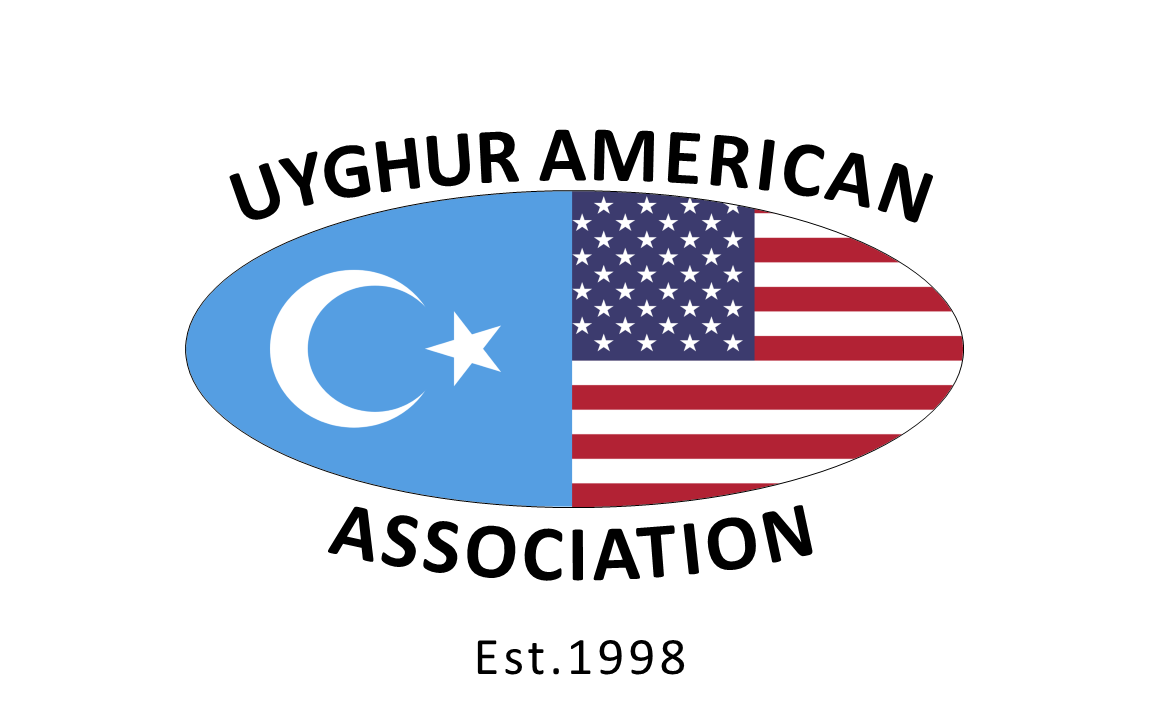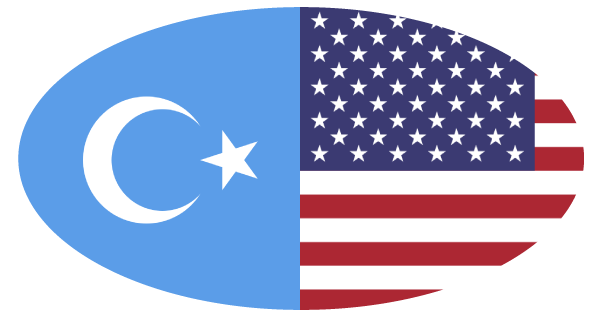Free Uyghurs and a Map
Miran Mavlan, Ph.D., is an advocate of human rights, environmental enthusiast, public speaker and organic material chemist. A Uyghur born in Ghulja (East Turkistan), he came to USA at the age of 7 and was one of the very first Uyghurs to live in CA. After obtaining his bachelors degrees in Chemistry and Physics, and Masters in Organic Chemistry at CSU, Northridge, he went on to obtain his doctorate degree at Purdue University. He then went on to cofound a biotechnology company dedicated to battling the plastic pollution problem by engineering biodegradable consumer products. A long time advocate of human rights, he has been campaigning for Uyghur self-determination through protests, interviews or written articles.
I could definitely spot the continents on the map. The major countries were no problem either, but it was always the small bordering countries which I could never quite remember. In Europe you had the cluster of countries between Italy and Ukraine, and the African continent had countries whose names I heard of but never could point to exactly on a map. On the Asian continent, Central Asia was the home of the “stans” like Pakistan, Turkmenistan and of course East Turkistan. I became an expert of the geography of this area, not because I studied them but because after I told people “I am Uyghur” the next question was always “where are you from?” It was always followed by a struggled oral explanation that evolved into finding a pen and notepad for a written explanation. Enough repetition and I knew that part of the world, East Turkistan and its surroundings, in and out; it all started from “I am Uyghur.” There must be some poetry in that sequence of events.
Once, the Los Angeles Uyghurs held an event at Santa Monica Pier, under a tent overlooking the ocean. It was such a beautiful place to talk about such dark things as the suffering of my people. I think that contrast made our message stand out. Our events were a disruption of the day, a shock to the system of tourists and locals. At all those events we had a map already drawn out so we could readily point to East Turkistan instead of scribbling on a notepad when the question “where are you from” inevitably came up. The tent was covered in pictures of the beauty of Uyghur culture, and the destruction of it by the Chinese Communist Party. Kids smiling to emaciated bodies. A sign read on the front, in all caps and bolded, “FREE UYGHURS!” that could be seen far down the street. I remember what happened next. Two police officers pulled up, approached us, and asked “I would like one” to which I replied “I am sorry? One what?” The cop pointed to our sign and said, “whatever you’re giving out for free.”
The famous Danish philosopher, Soren Kierkegaard, is quoted of saying “life can be only understood backwards and lived forwards.” In retrospect, that moment was important for two reasons. It demonstrated to me that (1) the Uyghur community had much work to do to announce ourselves to the world and (2) the work needed to be done on a larger scale. Fast forward to today; how times have changed. The word “Uyghur” is all too common in the tabloids, news, and social media. The word Uyghur is a talking point in political discussions all the way up to the US presidency. When that cop asked “I would like one” the word Uyghur was no different than a mysterious object (perhaps he thought it was a type of yogurt), but now the plight of the Uyghurs is rightfully compared to the struggle of the Jews during their darkest hours. “There is nothing more powerful than an idea whose time has come,” said the French poet Victor Hugo.
As Uyghurs, most of us are believers—mostly adherents to Islam, but also a sizeable Christian community—and often pray to God for help, for our people, our families, our friends, and our homeland. How sad it is when someone asks how your family is doing and you cannot even respond with the simple assurance that they are even alive, let alone doing well. Those prayers mumbled by Uyghurs and allies around the world should also influence our actions. In movies we see heroes and coalitions change the world, but often we forget that change happens because people first change themselves; the world transforming is simply a side effect of that metamorphosis. The wound that has been inflicted on the Uyghurs runs deep and it will never heal, but that wound has sparked some much-needed outrage. Perhaps it is true when Rumi said that “a wound is a place where light enters you.” I once wrote that the freedom of Uyghur people is a giant boulder in front of us. Some may come with wrecking balls (i.e. leading/organizing protests, appearing on news, assuming government positions), some with a hammer (writings, interviews, personal channels), some with a chisel (sharing news on social media, commenting where they can) and some with their hands (talking privately with others about the Uyghur struggle or sharing news media privately). Whatever tool you are capable of bringing to the fight for freedom and justice, we thank you for it. Let us not criticize each other. All of the tools at our disposal help break that boulder down. Just one thing…please don’t get in the way of the people using those tools.
In the famous novels of JRR Tolkien (Lord of the Rings) and its film adaptations, I recall a line that resonates with me… “how do you pick up the threads of an old life? How do you go on, when in your heart you begin to understand there is no going back?” The page has turned. The pen has lifted. Uyghur people will never be the same after this. And we should never be the same, otherwise what was the point of all the blood and suffering?
— Miran Mavlan, Ph.D.

